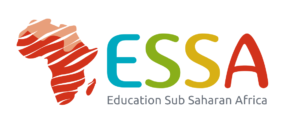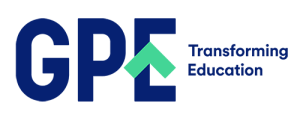NORRAG Partners and Members at CIES 2024
Find below some of NORRAG’s partners sessions at the 68th annual conference of the Comparative and International Education Society (CIES).
List of NORRAG Partners and Members Sessions:
-
-
- Protesting hegemonic definitions of quality education evidence: The case for a wider range of evidence
- Supporting education researchers in Africa: A new paradigm
- Fostering Agency and Resistance in Out-Of-School and At-Risk Children Claim their Right to Education through Alternative and Innovative Education Programs
- Strengthening policy formulation and sector analysis in West Africa: Innovations as key drivers of educational reforms
- The SDGs as a product of and mechanism for the global governance of education
-

Protesting hegemonic definitions of quality education evidence: The case for a wider range of evidence
Refereed Roundtable Session – Roundtable Group 12
Wed, March 13, 4:45 to 6:15pm, Hyatt Regency Miami, Floor: Lobby Level, Jazmine
There is an increasing desire in the global education sector to build a stronger culture of using evidence to inform decision-making in both policy and practice. Dominant definitions of “good” or “quality” evidence in the education sector are usually limited to research published through academic and traditional channels and display high methodological rigor. Such sources are often inaccessible to educational decision-makers due to paywalls and language that is difficult to understand and interpret. The issue of quality of grey literature is important because not just any piece of writing should be used as evidence. However, significant amounts of grey literature in education are not research products, so the well-established criterion for appraising traditionally published research is not fully appropriate. Building on the initial deliberations and debates of the International Working Group at its initial convening in June 2023, this Roundtable continues and deepens the discussion on defining quality for grey literature.
Speakers:
- Leslie Casely-Hayford, Associates for Change, and Erin Sorensen, Education.org: How widening the range of evidence enriches the quality of evidence in the Accelerated Education Programme Sector in West Africa
- Joan Dejaeghere, University of Minnesota : Reflexively co-constructing quality evidence
- Pauline Essah, Education Sub-Saharan Africa – discussant
- Suzanne Grant Lewis, Education.org – chair
- Moses Ngware, African Population And Health Research Center – discussant
- Erin Sorensen, Education.org – chair
Supporting education researchers in Africa: A new paradigm
Refereed Roundtable Session – Roundtable Group 17
Thu, March 14, 3:15 to 4:45pm, Hyatt Regency Miami, Floor: Lobby Level, Jazmine
-
- Funding Africa-based education researchers has the potential to improve the research ecosystem in the continent. Traditionally, education research in Africa is funded by multilaterals, governments and foundations. Funding mechanisms vary from one funder to another. For instance, there are those who prefer to fund African institutions/researchers, or African governments through ministries of education or northern institutions working in Africa, or a combination of these approaches. Each of these mechanisms have advantages and disadvantages. However, we know that funding northern institutions and researchers to conduct research in Africa is common in many countries.
Speakers:
-
-
- Pauline Essah, Education Sub-Saharan Africa: Role of funding in strengthening education research and capacity in Africa
- Moses Ngware, African Population And Health Research Center: Education researcher’s experience with research funding and collaboration in Africa
- Hetal Thukral, DDI Center for Education, United States Agency for International Development (USAID) – chair
-

Fostering Agency and Resistance in Out-Of-School and At-Risk Children Claim their Right to Education through Alternative and Innovative Education Programs
Formal Panel Session
Mon, March 11, 6:30 to 8:00pm, Hyatt Regency Miami, Floor: Third Level, Foster 1
Globally, over two and a half million children and youth are out-of-school, most of whom are in Southern Asia and Sub-Saharan Africa. These children are deprived of their fundamental right to education and pose a huge challenge to meeting the SDG target of inclusive and equitable quality education for all. For these children and young people, marginalized by a range of factors such as poverty, social status, geography, gender, and disabilities; the mainstream education systems do not represent or serve their needs as they ought to. The presentations in this panel will draw on new evidence generated through the Global Partnership for Education’s Knowledge and Innovation Exchange (GPE-KIX) funded applied research projects to address some of these concerns.
Speakers:
-
-
- Leslie Casely-Hayford, Associates for Change: The Power of Protest in Underserved Communities: The Case of People’s Agency for Basic Quality Education in Ghana’s Rural Deprived
- Kimberley Kerr, Inspire Education: Synthesis of Evidence and Learning on Scaling Educational Options for Out-Of-School Children and Youth (OOSCY)
- Sakil Malik, Global Center for Innovation and Learning – discussant
- Maria Margarita Lopez Castano, IDRC –chair
- Juwel Rana, South Asian Institute for Social Transformation (SAIST): Pedagogies and the Power of Protest for Equitable, and Inclusive Bangladeshi society: A Case of Secondary Schools
- Anna-Maria Tammi, Global Partnership for Education: Education System Transformation that Leaves No One Behind in GPE Partner Countries
-
Strengthening policy formulation and sector analysis in West Africa: Innovations as key drivers of educational reforms
Formal Panel Session
Thu, March 14, 11:15am to 12:45pm, Hyatt Regency Miami, Floor: Terrace Level, Tuttle Prefunction
This panel session will discuss a metanalysis of innovations selected from among more than a hundred ones collected by ministries of education in an increasing number of countries in the West, Central and Indian Ocean regions of Africa. These innovations address key educational challenges that have eluded governments for decades. Among these challenges are inadequate teacher professional development, low quality literacy and numeracy, lack of learning and teaching resources, persisting gaps in gender equality both in terms of access and learning outcomes, inequities and exclusion of the most vulnerable groups, insufficient integration of technology, outdated assessment systems, etc. One major characteristic of these innovations selected by ministries of education across the regions is that, in most cases, they are homegrown and initiated by actors working in the burgeoning EdTech private sector and non-government actors such as teacher unions, and NGOs working in alternative forms of education.
Speakers:
-
-
- Hamidou Dodo Boukary, International Development Research Center – chair
- Maria Margarita Lopez Castano, IDRC –discussant
- Boubacar Niane, Expert indépendant and Hamidou Dodo Boukary, International Development Research Center: Contextual factors that could facilitate or impede the adoption of the bottom-up approach to educational reforms
- KYELEM SERGE, Burkina Faso Ministry of Education: Planning the integration of innovations and knowledge into sector plans and policies
- Maïmouna SISSOKO TOURE, IFEF OIF: Mapping and Metanalysis of innovations in the Africa 21 region
-
The SDGs as a product of and mechanism for the global governance of education
Formal Panel Session
Tue, March 12, 9:30 to 11:00am, Hyatt Regency Miami, Floor: Terrace Level, Brickell Prefunction
Global governance as an area of study emerged in the later half of the 20th century as a result of the rise of common global challenges, increased economic and political interdependencies between nations, as well as the rise of the strength and influence of international and non-governmental organizations as norm-setters and global knowledge producers. This panel brings together authors for a forthcoming special issue of the International Review of Education. The presentations explore the various ways in which the SDGs effect education, as well as how the SDGs are representative of a global agenda for change.
Speakers:
-
-
- melanie Ehren, Vrije Universiteit Amsterdam – chair
- William C. Smith, University of Edinburgh: Prioritization of indicators in SDG 4: Voluntary national reviews as a tool of soft governance
- Elaine Unterhalter, Centre for Education & International Development: Gender, global governance and negotiations with soft power in advancing SDG 4
- Shoko Yamada, Nagoya University: The Synchronic and Diachronic Evolution of Key Themes around SDG4 after 2015: From a Quantitative Analysis of Web-Downloaded Texts
-
About the Conference
The power of protest in education lies in the fact that it is, by definition, a public act. Protest allows people facing injustice to generate power through collective action. As a community of Comparative and International Education researchers, teachers, activists, programme developers or organisers, how might we engage with, and think generatively about, the histories, curriculum, theories and methodologies, and pedagogies that guide acts of protest? Our hope is the CIES 2024 Conference in Miami held online (March 6-7) and onsite (March 10-14) will inspire debates, dialogues, and future collective actions.

